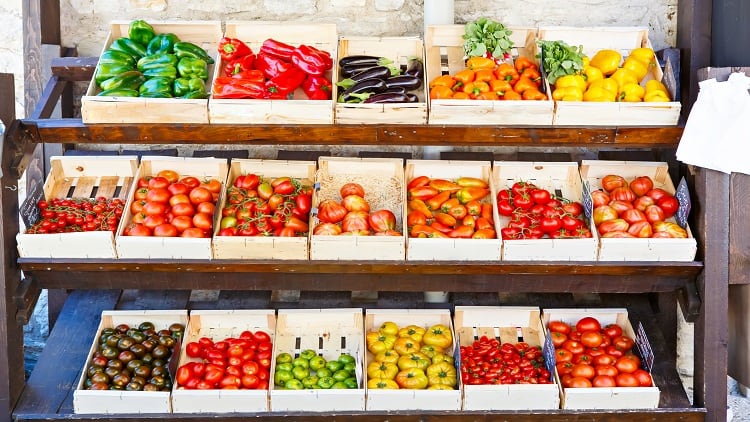FoodNavigator-Asia spoke to Walaiporn Phumirat, founder of Backyard Strawberry, an organic strawberry farm based in Chiang Rai, and Neak Tharen, founder of Natural Garden Cambodia, a wholesale company that farmed and sold organic vegetables and fruits.
One reason for high production cost was due to the need for re-investment on fertiliser, greenhouse, crop integration plan, organic seed, bio-pest, labour cost, inspection and certification, said Tharen.
His farms produce five to seven tonnes of organic fruits and vegetables per week, with production growing 27% to 28% in the past three years. His products include cool climate vegetables and fruits such as mango, durian and pomelo.
Local Cambodians form 60% of his customer base.
“We supply to some vendors in the wet markets of Phnom Penh. But we are mainly into wholesale activity, which is supplying to supermarkets, hotels, restaurants.”
However, labour, fertiliser, technique in cool climate vegetable production, inspection and certification remain cost intensive, which made it difficult to cut the production costs, he said.
According to the Cambodian Centre for Study and Development in Agriculture (Cedac), there are currently around 2,000 organic farmers in the country, and the centre is hoping to increase the number of farmers to 3,000 by this year.
On the other hand, Phumirat who was already six years into the trade also said that she has not yet seen a reduction in production cost. She explained that this was because products were sold at a reasonable price not meant to reap the highest profit.
“The price for my organic strawberry is 600 baht per kilogram, which is acceptable for the consumers and also makes sense for the farm,” she said.
Consumer trends
Phumirat observed that less affluent consumers are also buying organic products these days.
These consumers usually purchase products during promotions or pay a cheaper price for products that may not have a nice appearance.
“Since the organic trend is being recognised in Thailand, most people started to give it a try, but they will only pay for just something they are really into, such as premium chocolate or strawberries.”
Besides consumers who have higher health awareness, Phumirat said that organic products have also attracted the younger generation, who see eating organic food as a novel, fashionable trend, and to show that “they are protecting the world” at the same time.
As such, she believes that enhancing the narrative behind organic products, such as “attaching more stories or values to the products” can attract more consumers.
Tharen added that social media such as Facebook had played a crucial role in propagating news on food safety, attracting medium income consumers to spend on quality products.
Expansion
Both Tharen and Phumirat have recently participated in the ASEAN Young Business Leaders Initiative, a project the Asia New Zealand Foundation delivers for New Zealand’s Ministry of Foreign Affairs and Trade.
Phumirat said she was motivated to expand her business overseas after joining the programme. However, before doing so, she will focus on creating processed strawberry products, such as strawberry vinegar for future market launch.
As for Tharen, he aims to work with over 500 farmer beneficiaries who supply their products to Natural Garden to expand his business.
“We want to be a big player in term of supplying organic and safe food produce from farmers to consumers by having more small and medium outlets under Natural Garden brand through the country and also looking for the potential of the export market. ”


